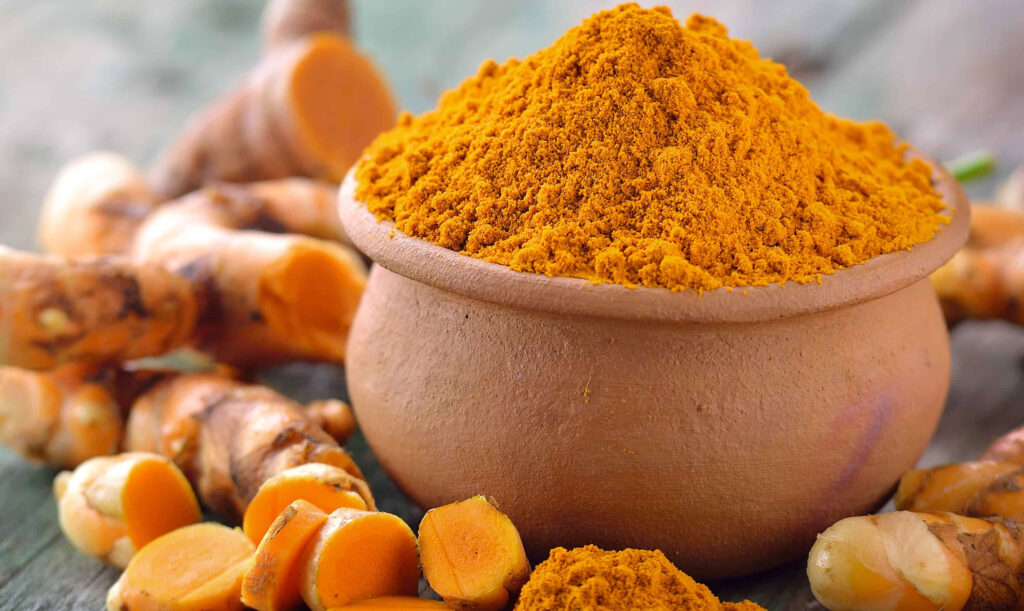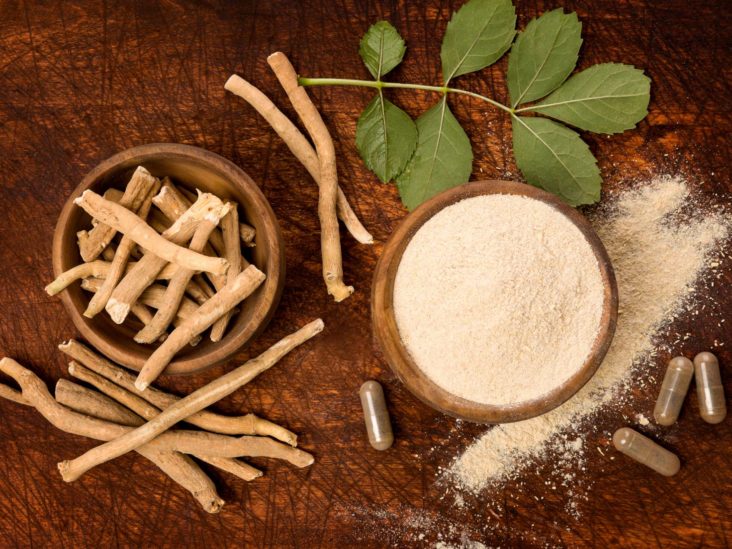Cúrcuma: A Erva Dourada
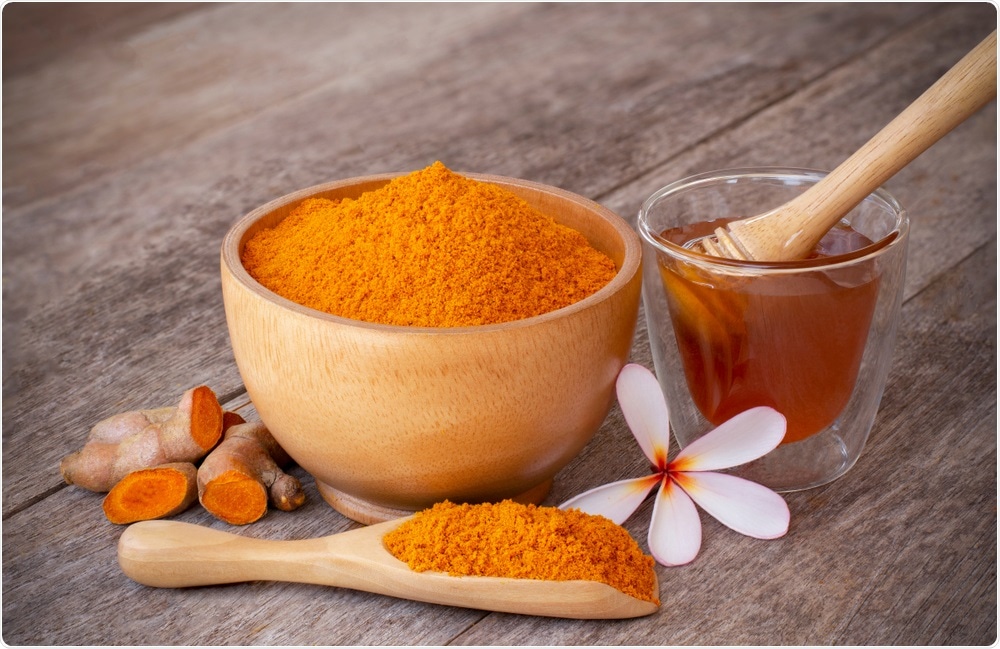
Cúrcuma é um grampo nas cozinhas indianas – seja para dar sabor ao nosso caril ou despejado em leite fervente para aliviar um nariz escorrendo. Seja a tontura da febre, um surto de acne ou um hematoma de cura lenta, a cúrcuma sempre encontrou seu caminho nos remédios caseiros de nossa avó.
Cúrcuma longa é uma planta herbácea perene da família do gengibre. É nativa das regiões tropicais do sul da Ásia e cultivada predominantemente na Índia. Cúrcuma indiana é considerada a melhor do mundo por suas qualidades inerentes e alta biodisponibilidade de curcumina. O pó de cúrcuma de cor dourada é obtido pela moagem do caule subterrâneo da planta, um rizoma. O uso de cúrcuma como ingrediente culinário remonta a 2000 a.C. Índia védica.
As propriedades curativas da cúrcuma fazem dela uma erva incrível, usada em muitas formulações ayurvédicas. Cúrcuma é conhecida como Haridra em sânscrito, significando aquele que adorna Hari ou Senhor Vishnu. Sua cor amarela radiante é auspiciosa e parte integrante de vários rituais. Possui propriedades curativas multitudinárias e tem propriedades antioxidantes e anti-inflamatórias.
Esta especiaria amarela vívida foi aclamada como um superalimento. A curcumina, um dos componentes ativos mais importantes da cúrcuma, tem sido pesquisada extensivamente por causa de suas propriedades anti-inflamatórias. Melhora a imunidade e ajuda a manter os níveis de açúcar no sangue. Ajuda na digestão saudável e aumenta o seu humor.
Cúrcuma em Ayurveda

Em Ayurveda, cúrcuma é classificada como Vayasthapana, ou restaurador de idade, e Ojo vardhana, ou impulsionador de vitalidade. Ele equilibra Vata e Kapha dosha por causa de sua ushna ou potência quente. Equilibra Pitta por causa de sua amargura. Assim, equilibra os três doshas. Ele suporta saudável Rasa dhatu (plasma) e Rakta dhatu (sangue) e nutre o sistema circulatório, circulando seus benefícios para a saúde em todo o corpo. Ele suporta Agni (metabolismo saudável) e, portanto, mantém a força digestiva ideal.
Propriedades da cúrcuma

Cúrcuma tem muitas propriedades que o tornam um ingrediente inestimável em muitas formulações ayurvédicas. Vejamos algumas das propriedades proeminentes da cúrcuma:
- Turmeric for pimples: Curcumin, the active principle of turmeric, has potent anti-microbial properties. Since ancient times, it has been a well-known and effective remedy for many skin issues.
- Turmeric for pain relief: Enriched with anti-inflammatory properties, turmeric is effective in joint issues.
- Antioxidant: Turmeric is a rich source of antioxidants, protecting the body from the adverse effects of free radicals.
- Turmeric for Diabetes: Turmeric possesses anti-diabetic properties, helping decrease blood sugar levels and may reduce the effects of diabetes complications.
- Turmeric for weight loss: Turmeric is a metabolism booster that reduces fat tissue growth.
Benefícios de saúde de cúrcuma
Haridra (curcuma longa) ou cúrcuma é o açafrão indiano e a especiaria dourada. Os benefícios de Haridra têm sido extensivamente discutidos em textos clássicos Ayurveda. O fato de Haridra ter 80 sinônimos é uma prova de seus benefícios utilitários identificados há milhares de anos.
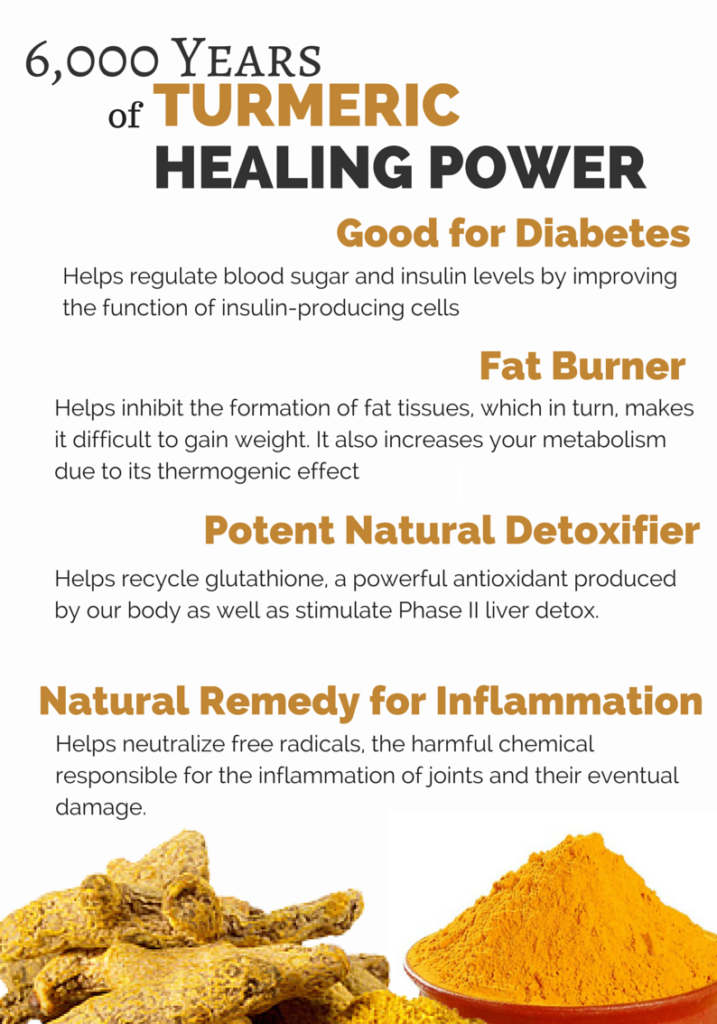
- Turmeric for immunity – Turmeric is known as an immunity booster herb. Curcumin, an active compound found in turmeric, has anti-inflammatory properties that can help fight colds, flu, and other microbial diseases. Turmeric milk, or Haldi doodh has traditionally been a healing remedy for colds and coughs.
- Turmeric for pimples – Turmeric has been linked to beauty therapies because of its skin healing properties. It has over 300 antioxidants that help brighten skin and prevent breakouts. A face pack of sandalwood, turmeric, and milk can effectively remove tan.
- Turmeric for wound healing – Turmeric has antiseptic properties that can promote quick wound healing. Topical application of turmeric over fresh or chronic wounds promotes faster wound healing. It also prevents and cures fungal infections.
- Turmeric for digestion – The antioxidant and anti-inflammatory property of turmeric boosts digestion and soothes the stomach lining. The Katu (pungent) taste escalates the Agni (digestive power) and facilitates the secretion of digestive juice.
- Turmeric for cholesterol – Turmeric improves your blood vessels’ function and keeps cholesterol in check. It helps improve circulation and reduces the triglyceride levels.
- Turmeric for pain relief and joint health– It improves the functioning of joints by easing joint pain and improving flexibility. It can help reduce the inflammation of joints, relieving swelling. Due to curcumin’s presence, turmeric helps relieve joint issues. It is inherently Vata-kapha pacifying in nature and has a soothing effect on the locomotor system. Ayurveda Acharya Vagbhata included turmeric in the Haridradi group, indicated for curing rheumatism. Contemporary studies have confirmed that curcumin, the key ingredient of turmeric, protects soft tissues, including cartilage.
- Turmeric for brain health – Curcumin boosts levels of the brain hormone BDNF. This hormone boosts the growth of new neurons and may help fight various brain degeneration. It is also said to improve memory and concentration and reduce anxiety.
- Turmeric for liver – Turmeric helps in detoxification and helps maintain liver health. Studies have confirmed that it may help heal nonalcoholic fatty liver. It helps reduce oxidative stress and assists in liver regeneration.
- Turmeric for diabetes – Turmeric helps reduce blood sugar and associated complications in type 2 diabetes. It also assists in healthy weight management. It improves fasting blood sugar levels and insulin resistance.
Cúrcuma Home remédios
Como as pessoas estão bem cientes de muitos benefícios de cúrcuma, tem sido amplamente utilizado em remédios caseiros. Vejamos alguns usos bem conhecidos da cúrcuma:
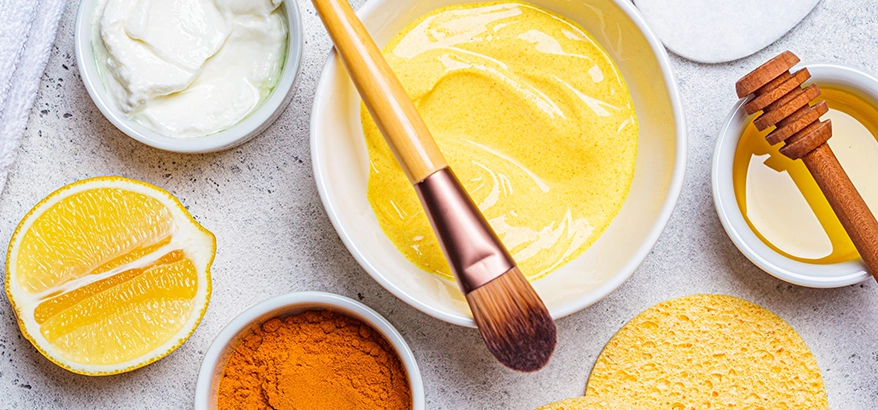
- Turmeric milk is a traditional, soothing drink, often called golden milk, used to soothe a sore throat and other inflammatory conditions. To prepare Turmeric milk, add ¼ teaspoon of turmeric and a pinch of black pepper powder into a glass of warm milk and drink. This turmeric milk is well known for treating colds and coughs. It is also suitable for promoting sleep. Adding pepper helps in better absorption of curcumin.
- Turmeric is used in many face packs. Because of its antimicrobial and healing properties. For oily skin, use of turmeric powder with lemon juice or multani mitti, and for dry skin, use it with milk as a face pack. Apply it for 10-15 minutes and wash with cold water. It helps clear pigmentation, acne, blemishes, and tan.
- For relieving a sore throat, mix one teaspoon honey with ½ teaspoon turmeric powder and consume 2-3 times a day.
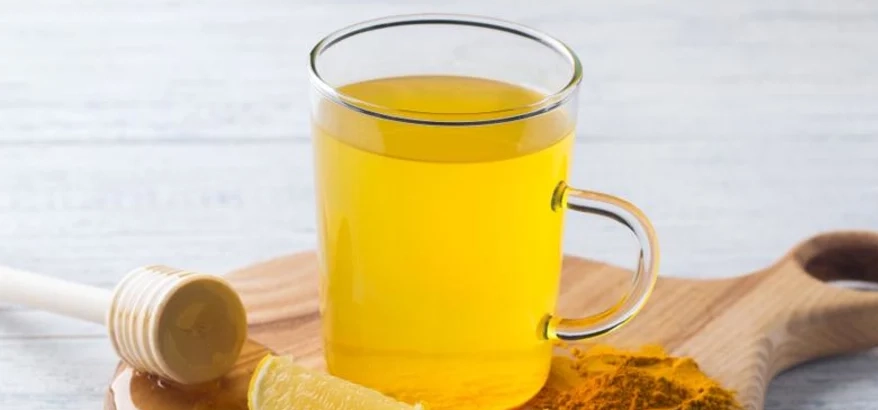
- Turmeric tea is a soothing and warm blend of herbs steeped slowly to detoxify your body. Boil 200 ml of water and add one inch of freshly grated turmeric or ½ teaspoon of turmeric powder. Strain and add one teaspoon of lemon juice and honey as required.
- Mix one tablespoon of amla juice with a pinch of turmeric and consume on an empty stomach to balance your blood sugar levels.
Efeitos colaterais da cúrcuma
Cúrcuma é seguro para consumo. As cozinhas indianas usavam cúrcuma nos tempos antigos. No entanto, deve-se saber os potenciais efeitos colaterais de cúrcuma ao usá-lo como um suplemento ou tomá-lo em grandes quantidades.
- If taken in large quantities, turmeric might cause gastric irritation, diarrhea, or mild discomfort.
- Some commercially available turmeric powders with harmful colorants and fillers, such as rye might be adulterated. These can cause ill effects, so always consume turmeric from reliable sources.
- Turmeric has an anti-coagulant effect, so if you are on blood thinners like warfarin, it may lead to excessive bleeding.
- Turmeric might lead to drug interactions if you are on other medications. If you are on any other medication or have any health issues, it is better to consult your Doctor before taking any turmeric or curcumin supplement.
- Turmeric might stimulate contractions, so any turmeric or curcumin supplement should be avoided by pregnant women.
Principais conclusões
- Turmeric is a herb with potent healing properties
- This golden spice has a particular affinity towards blood and promotes detoxification.
- Turmeric has immense health benefits that range from managing diabetes to improving heart health.
- It is essential to consume turmeric or curcumin supplement only from reliable sources to avoid possible side effects of adulterated turmeric.
- Adding a pinch of black pepper can help better to absorb curcumin, the active component of turmeric.
